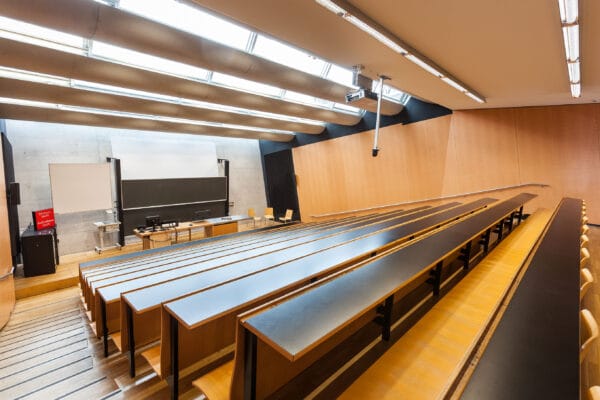
NAME:
SOWI - HS 1
BUILDING:
SOWI
FLOOR:
0
TYPE:
Lecture Hall
CAPACITY:
160
ACCESS:
Only Participants
EQUIPMENT:
Beamer, PC, WLAN (Eduroam), Overhead, Flipchart, Blackboard, Sound System, Handicapped Accessible, Microphones
The International Network for Alpine Research Catchment Hydrology (INARCH) is a cross-cutting project of the GEWEX Hydroclimatology Panel (GHP) to better understand alpine cold regions hydrological processes, improve their prediction, diagnose their sensitivities to global change, and find consistent measurement strategies. At its core is a global network of 38 highly-instrumented mountain observatories and experimental research sites in 18 countries and six continents, which are testbeds for detailed process studies on mountain hydrology and meteorology, developing and evaluating numerical simulation models, validating remotely sensed data, and observing, understanding, and predicting environmental change. INARCH has completed a Common Observing Period Experiment (COPE) over the period 2022–2024, collecting high-quality measurements along with supplementary observations and remote sensing campaigns, to produce a common, coherent, and well-documented and described data set of mountain meteorology and hydrology. These data are being used for a series of hydrological process diagnostic modelling evaluations and analyses, emphasizing atmospheric, snow, glacier, and water processes in high mountain terrain. This is to better understand why models produce various behaviours and to assess if models benchmark various known aspects and regimes of the coupled atmospheric-cryospheric-hydrological system, not only for open sites, but for sparse forest, non-needleleaf vegetation, glaciated, and alpine windblown sites. In the end, COPE will produce a valuable and unique set of observations, model simulations and intercomparisons, new process understanding and insights, and better prediction of the changing mountain water cycle. This presentation will review major activities undertaken as part of the COPE and the outcomes and advancements towards addressing key INARCH science questions.

We and use cookies and other tracking technologies to improve your experience on our website. We may store and/or access information on a device and process personal data, such as your IP address and browsing data, for personalised advertising and content, advertising and content measurement, audience research and services development. Additionally, we may utilize precise geolocation data and identification through device scanning.
Please note that your consent will be valid across all our subdomains. You can change or withdraw your consent at any time by clicking the “Consent Preferences” button at the bottom of your screen. We respect your choices and are committed to providing you with a transparent and secure browsing experience.